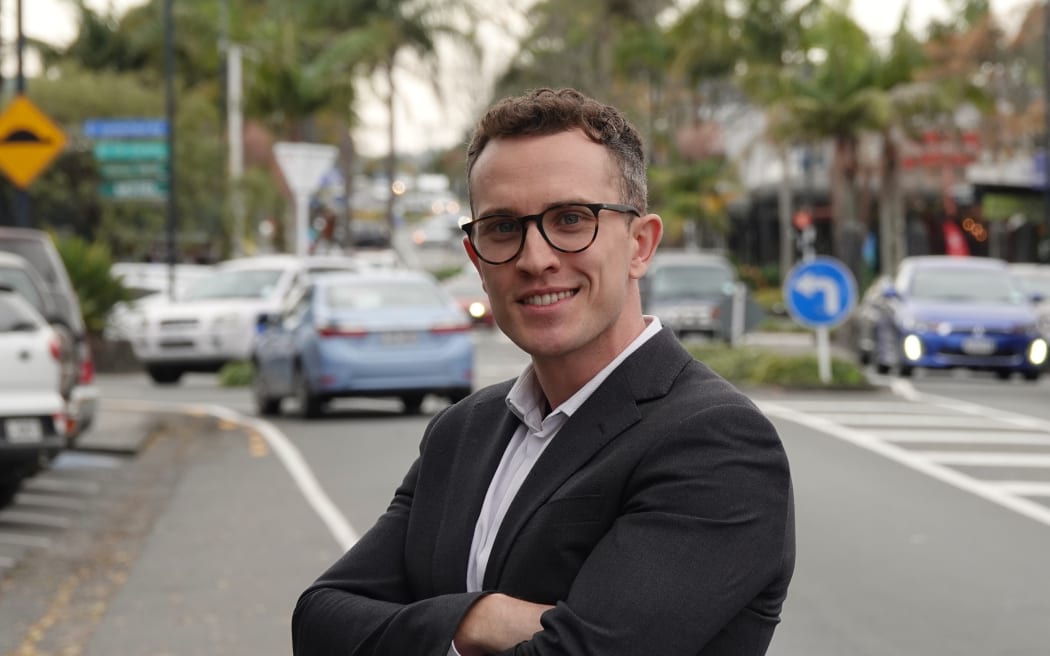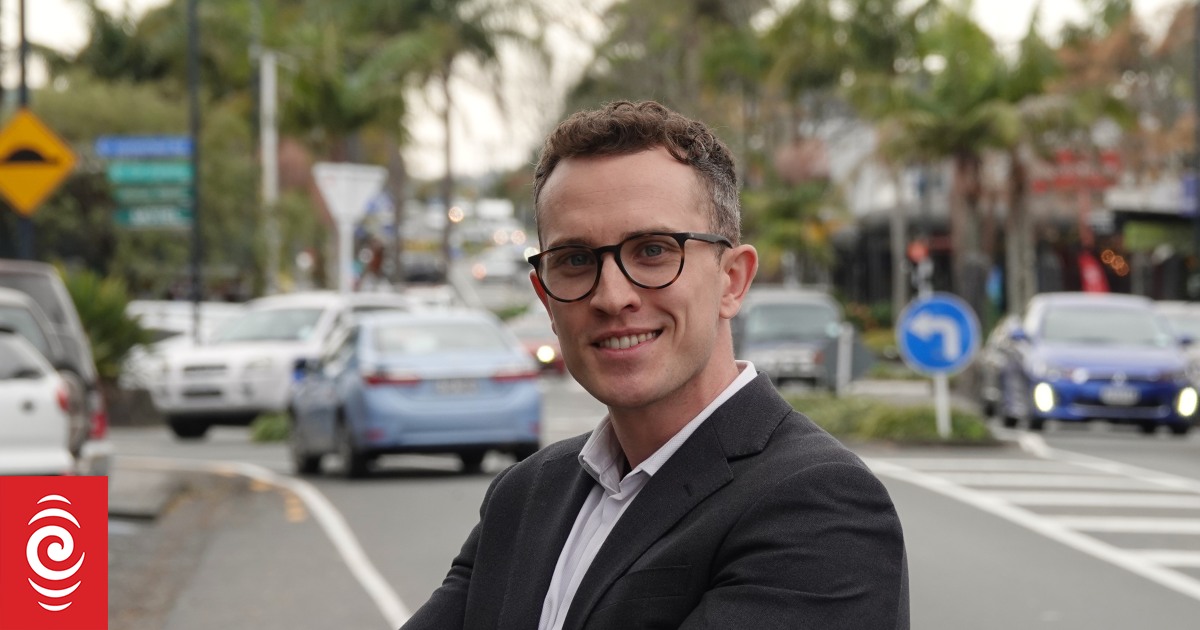
Northland lawyer Keegan Jones brought the first of his free legal clinics to Kerikeri this week.
Photo: RNZ / Peter de Graaf
A new service is offering Far Northerners free legal clinics – alongside mental health support – in a tikanga Māori setting.
The fortnightly advice sessions – the first of which were held in Kerikeri on Tuesday night – are the brainchild of young Northland lawyer Keegan Jones, in partnership with Te Whatu Ora/Health New Zealand and the Far North Citizens Advice Bureau.
While Jones can not dispense formal legal advice during the clinics, he can offer guidance to people struggling to find their way in a legal system they do not understand or can not afford to engage with.
Jones said alongside the cost-of-living crisis, New Zealanders were suffering an “access-to-justice crisis”.
That was particularly true in places like Northland where many people struggled to put food on the table, let alone a hire a lawyer.
Jones said such people were always at the back of his mind when he was studying to become a lawyer.
“Coming from Northland I saw the disparities within our justice system, especially in Northland, having one of the highest rates of poverty in the country. As lawyers we have a constitutional duty to uphold the rule of law and I think it just worked hand in hand, me coming back home and also offering my service pro bono.”
The 26-year-old, of Ngāti Hine and Ngāti Porou descent, said he was particularly troubled by the over-representation of Māori in the justice system.
“That was, I guess, the fundamental reason why I wanted to come back home. I wanted to attack that and the best way to do that was establishing a free legal clinic.”
Jones got his start in Whangārei offering free clinics through 155 Community Law and Ngāti Hine Health Trust, an experience he found hugely fulfilling.
While he specialised in commercial law and Māori land, people booking sessions wanted help with everything from criminal law to the family court to estates.
“I could really see that those people that I was advising really appreciated the information I was giving them, and it was also taking some of the raruraru or hurt and burden they were facing. So I thought, this is wicked, I want I want to keep this going.”
By the time that scheme ended late last year, Jones had helped up to 150 people during an eight-month period.
Jones then established a partnership with the Citizens Advice Bureau (CAB) and Hihiaua Cultural Centre in Whangārei.
Basing the clinics at Hihiaua allowed them to be held in a te ao Māori setting.
“That was part of reducing barriers to provide a safe space for our Māori whānau, but incorporating those tikanga principles makes it a safe place for anyone,” he said.
“I know that my people want to have a safe space to share their raruraru. They don’t want to walk into some legal centre and meet some random Joe Bloggs and share all this hurt they have, they want to talk to me about who they are first, where they come from, who their whānau is, and that’s what I do as well. It just brings those walls down and then we can get into the nitty-gritty of what the legal issue might be,” Jones said.
The new Kerikeri clinics are a partnership with the Far North CAB and Te Whatu Ora/Health New Zealand, which provides the venue and – uniquely – has mental health clinicians on hand, allowing immediate referrals for people needing help with more than just legal issues.
Jones said legal and mental health problems often went hand-in-hand.
“When someone has a legal issue it brings on stress. People don’t know where to start, who to talk to, lawyers are very expensive, and it just brings all these stresses into one’s life,” he said.
Te Whatu Ora Mid North team manager for mental health and addictions Jaquii Hessell said many patients did not have access to legal services, or the support they needed to access them.
“So having legal services embedded here allows our whānau, because they’re familiar with us, and familiar with this place, to come in and talk about those difficult or distressing things around legal need,” she said.
Far North CAB chairperson Karen Campbell said she had been trying to set up free, face-to-face legal help for her clients for the past seven years, so she was delighted to have Jones on board.
“Lawyers are very expensive and we have lots of people in our community who are struggling financially, so it’s really important that a free service is available.”
Jones said the clinics took a tikanga Māori approach but were open to everyone.
Making a booking was as simple as phoning the Kerikeri CAB or going its website.
“I love my community, I love Northland, I think it’s one of most beautiful places in the country – but I also know a lot of people aren’t doing so well. We’re in a cost-of-living crisis and our people can’t afford food let alone a lawyer, so to be able to provide a service for our people which could potentially lead them the right way or save them a buck or two, that’s awesome.”
Jones, who was raised on Karikari Peninsula and attended Springbank School in Kerikeri, said his next goal was to roll out free clinics to other Far North towns, such as Kaikohe and Moerewa.
He was also hoping to enlist other lawyers to his cause.
No one involved in the scheme was paid but he was in the process of establishing a trust so he could apply for funding to cover volunteer lawyers’ travel expenses.




